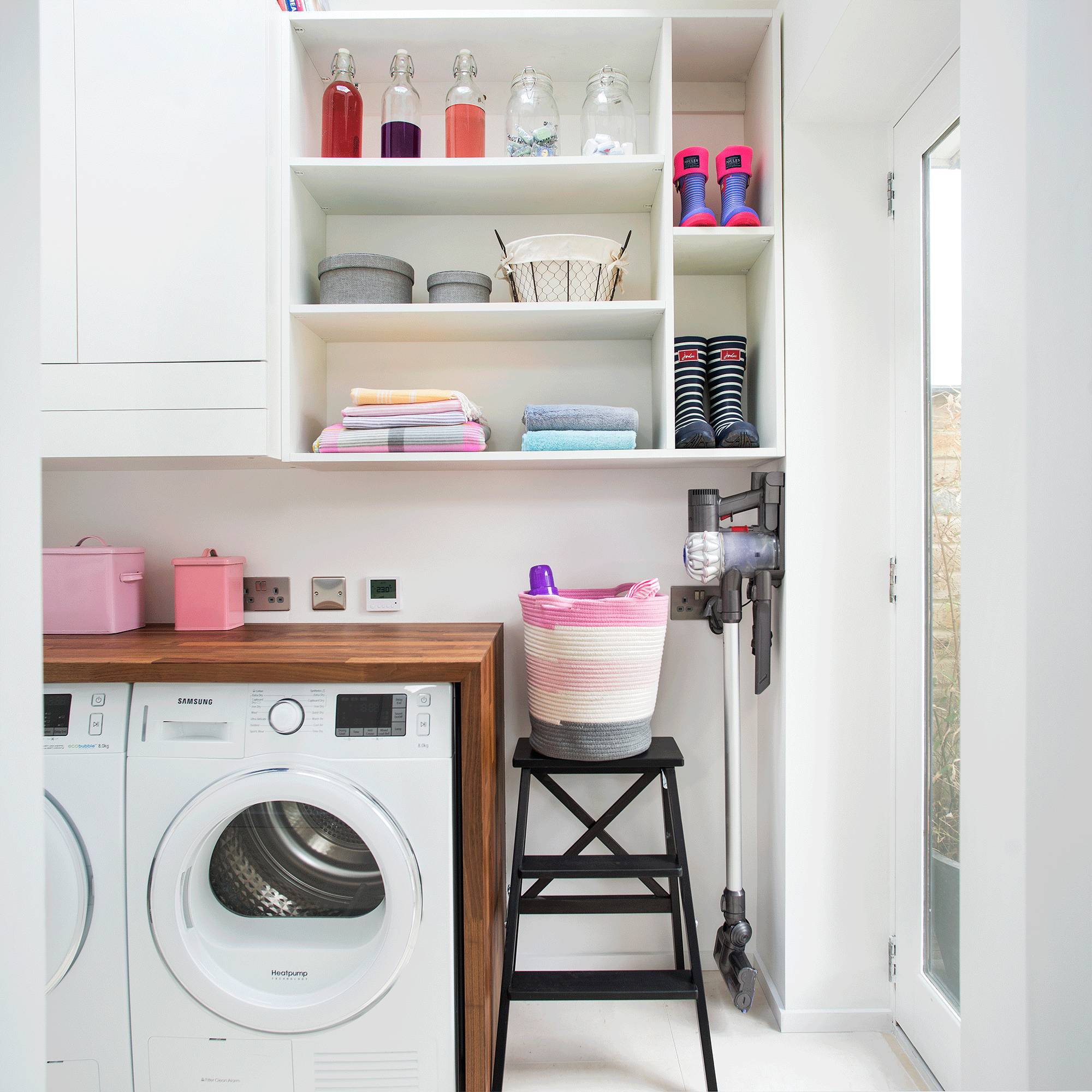
Whether it's a chore you love or hate, vacuuming is essential for keeping a clean and healthy home. But it's important to know about the things you should never vacuum, so that your device can keep ticking away without any issues.
After all, the best vacuum cleaners are an investment that you want to last as long as possible, and vacuuming up the wrong things can pose a serious safety risk - to you, your vacuum and your home as a whole. Thankfully, combining the right machine with the knowledge of how to vacuum properly can ensure you get the best results for your efforts and keep your vacuum in good working order for as long as possible.
'Vacuums are versatile household cleaning devices, but just like any other appliance, there are things that shouldn’t go in them,' says Lily Cameron, Cleaning Supervisor, Fantastic Services. 'These items can cause clogs and sometimes even lead to electrical failures.' So, these are the 7 things you should never vacuum up.
1. Water and other liquids
You probably don’t need me to tell you that water and electricity don’t mix, so it probably won’t surprise you to learn that you should never vacuum up water and other liquids. In fact, doing so would be a recipe for disaster.
Jade Gee, Senior Product Manager at floorcare experts, VAX, agrees with me. She says, ‘With a dry vacuum, it’s important to never vacuum up wet messes, this can be anything from a spilt drink to wet food mess.’ That’s because this liquid can get into the smaller components of the vacuum, damage the motor, and potentially even cause mould build-up.
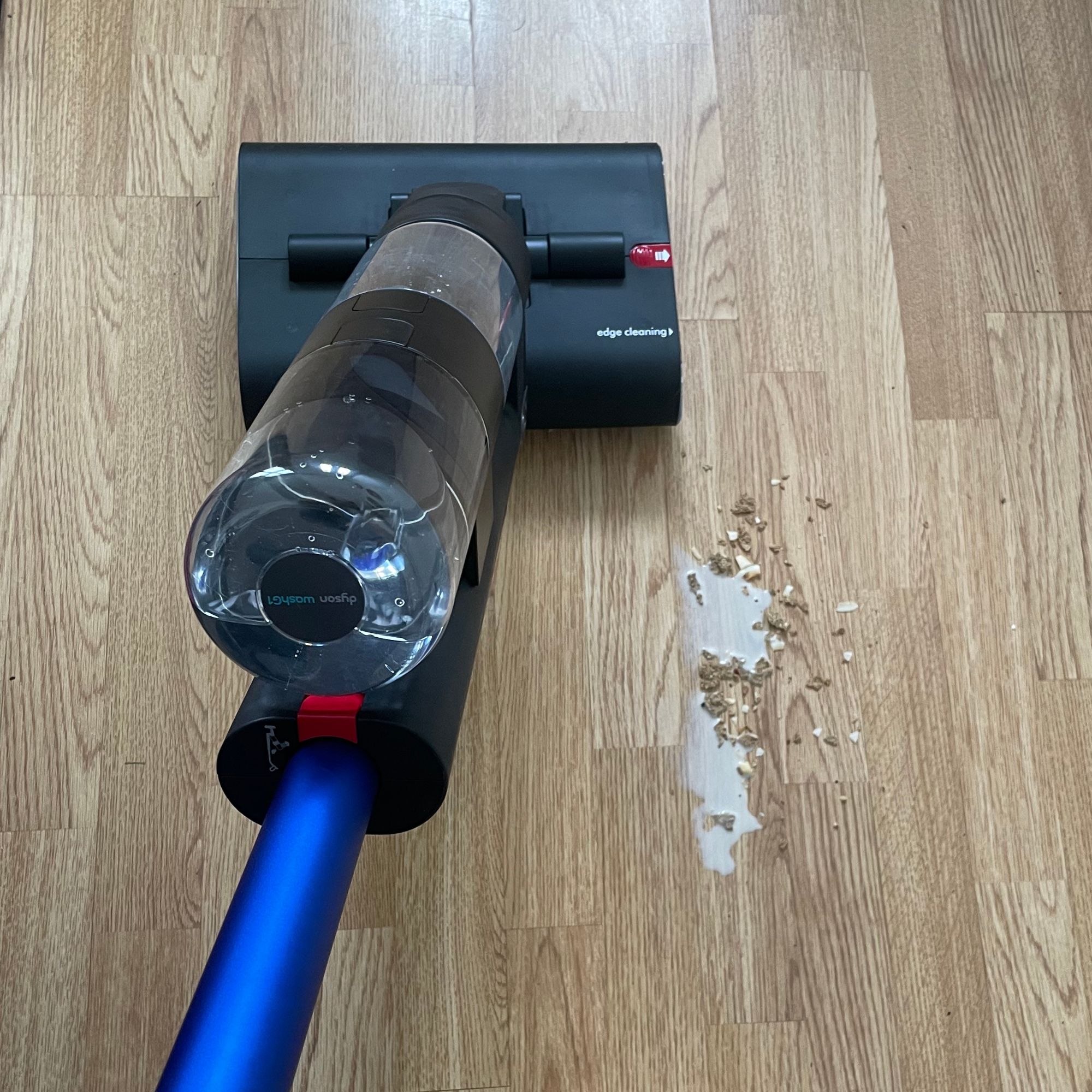
Instead, you should blot any wet messes with a paper towel or invest in a vacuum mop for hard floors. My personal favourite and the one I use at home is the Bissell CrossWave OmniForce Edge, which can vacuum and mop both wet and dry messes simultaneously.
If you want to clean liquids or remove stains from a carpet, Jade suggests using one of the best carpet cleaners and spot cleaners. We recently tested the VAX Spotwash Home Cordless, and our reviewer found it perfect for on-the-go cleaning of wet messes. Especially as you’re not tethered to any wires, so it can also be used in the car.
2. Flammable or combustible materials
In the same vein, any flammable items are a big no-no when it comes to vacuuming your home. These pose a serious safety risk and should be avoided at all costs - for the sake of the vacuum itself and your home as a whole.
Jade says this includes ‘hot materials such as coals, cigarette butts, matches or smoking hot burning items.’ And while you might not have these things lying around the house, it’s important to note that there are plenty of other household items that are flammable in nature. Batteries, nail polish, roller lint and cooking oil are all things you should never vacuum.
3. Sticky substances
Just like you shouldn't hoover over anything that's wet, sticky substances should be avoided too, as these could clog up your vacuum's roller brush and make it a nightmare to use afterwards. Even cleaning your vacuum might not solve the problems caused by sticky substances, in fact.
'Sticky types of messes aren’t safe to vacuum, because they can stick to the brush roll, hose, or interior and cause a clog,' Lily says. 'Even if they make it inside the vacuum safely, sticky particles can develop mould and later spread mould spores or unpleasant smells every time you vacuum.'
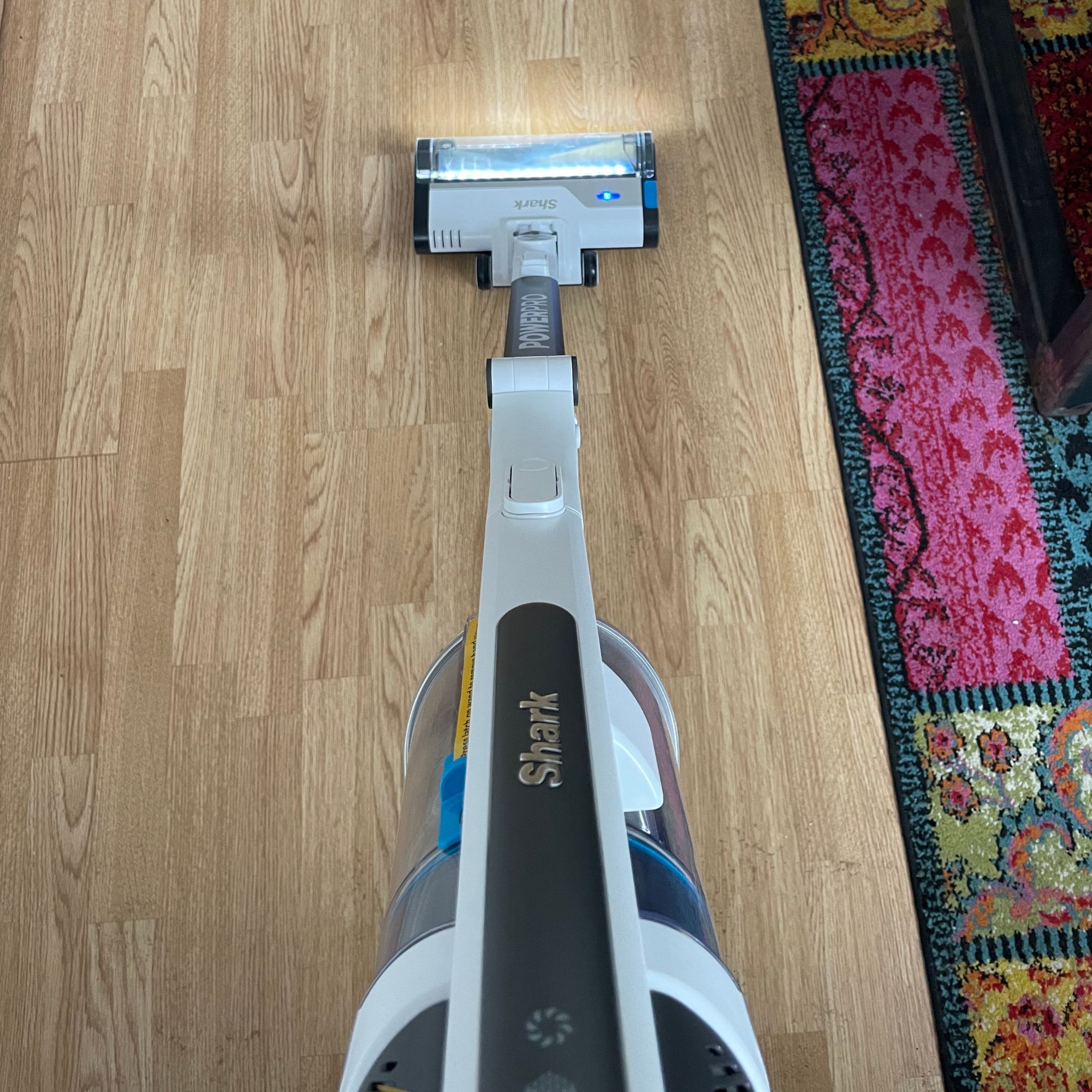
Yes, vacuuming sticky substances is a surefire way to get a smelly vacuum cleaner, and it can be incredibly hard (and sometimes even impossible) to remove this smell entirely. The worst-case scenario is that you’ll need to buy a whole new vacuum cleaner, which is probably money you don’t want to spend.
So don't be tempted to vacuum over grease or adhesive residue after you've used tape on the floor. Try cleaning with white vinegar instead.
4. Glass
Breaking a glass is never fun, and your instinct may be to grab your vacuum if it's broken into lots of little pieces. This isn't advisable, though, as the sharpness of the glass risks damaging your device.
Jade warns, ‘These could pierce hoses or damage the vacuum internally.’ And if you have opted for the latter in the bagless vs bagged vacuum debate, it can also damage the bag and cause a serious blockage. So, you should simply sweep up the broken glass to remove it instead.
5. Small objects (or large debris)
In general, vacuums are designed to handle small to medium-sized debris, and anything larger has the potential to damage the internal components. This is why small objects, or larger debris, are some of the things you should never vacuum up.
Catrin Davies, Product Manager at SDA Hoover, explains that doing so will typically lead to you having to unclog a vacuum hose - or worse. She says, ‘To avoid damaging your vacuum or creating a safety risk, never pick up large objects like coins, buttons or tissues - they can cause blockages.’
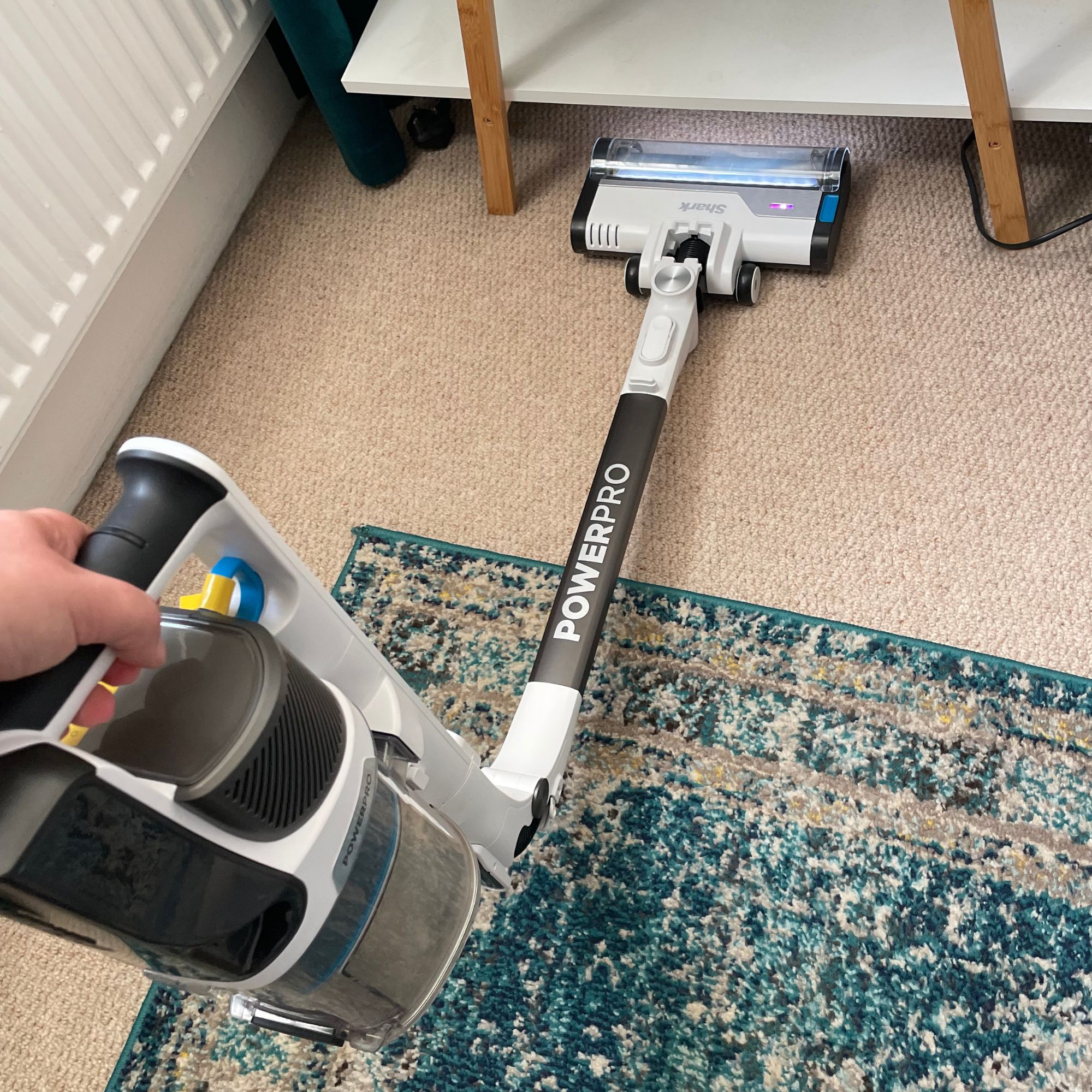
The best course of action in this instance is to pick up any small objects before you start vacuuming. If you vacuum something up by accident, you'll probably hear a concerning noise, so turn the vacuum off immediately and remove it from the inside before continuing.
Of course, there is the handy sock hack you can use if you know that you’ve dropped an earring on the floor and can’t quite find it again, but this isn’t advisable for whole-home vacuuming.
6. Fine dust and powders
Although you can clean carpets with bicarbonate of powder every once in a while, most experts would advise against vacuuming up fine dust and powders - especially if you want to do it regularly, and with a high volume of the powder.
And if you spill some flour on the floor or there's some sawdust leftover from your latest DIY home repair job, the experts recommend reaching for a dustpan and brush over your vacuum.
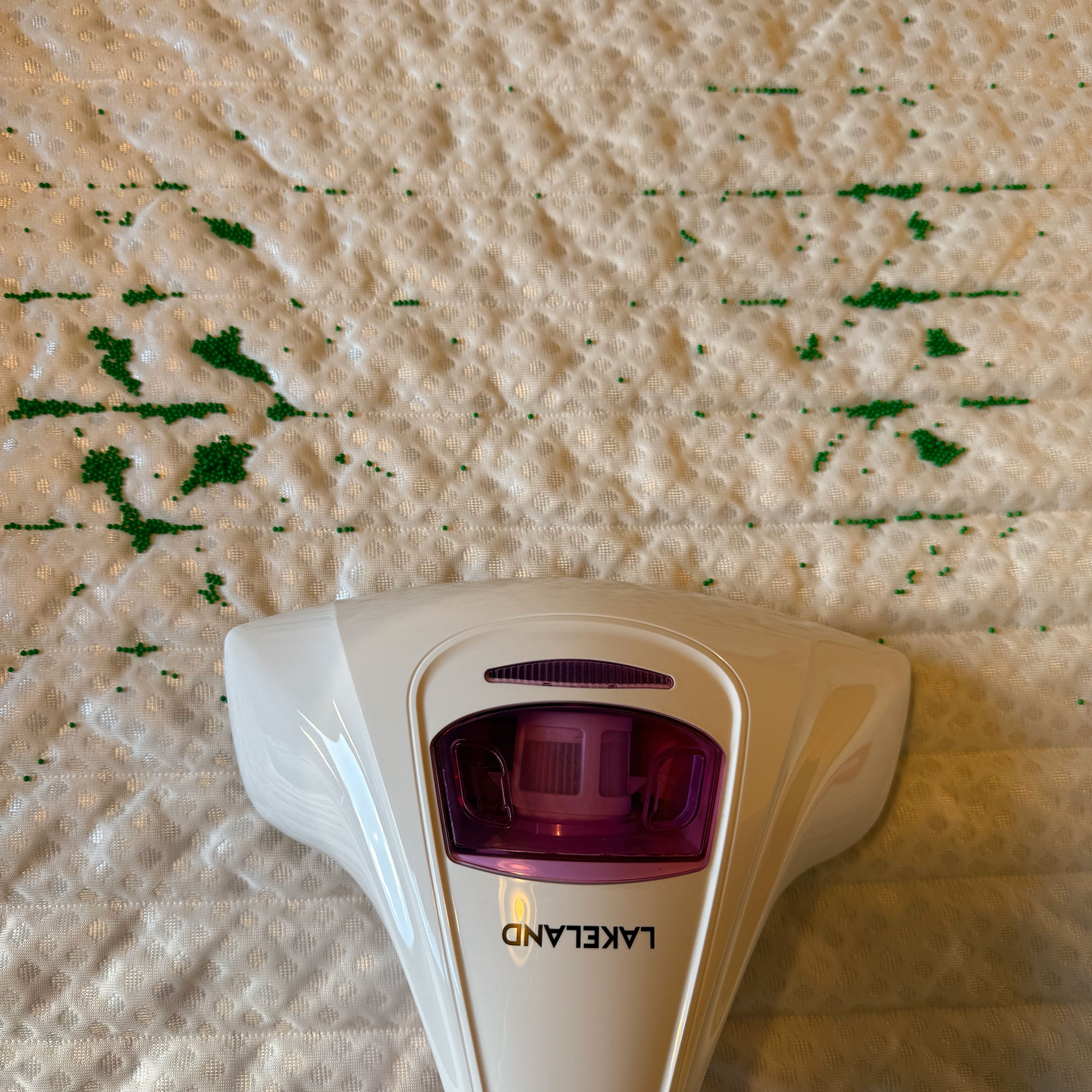
'Vacuuming fine dust or powders, such as flour, ashes, or plaster dust, can clog the filters and damage the motor of a vacuum cleaner,' Lily says. 'If it’s necessary, consider using a specialised vacuum cleaner designed for handling fine dust, equipped with the appropriate filters.'
For example, if you want to remove stains or odours by sprinkling bicarb and then vacuuming your mattress, it’s best to use a specific mattress vacuum like this Lakeland Handheld Mattress Vacuum with UV Light, £59.99 at Lakeland.
7. Mould or mildew
The last thing you should never vacuum up is mould or mildew, and taking steps to get rid of damp from your home should ultimately be your first port of call if you notice any signs. Vacuuming is not the answer, though, says 'Vacuuming mould or mildew can release spores into the air, which can be harmful to your health', says cleaning expert Sarah Dempsey at MyJobQuote. 'Instead, use a cleaner designed for mould and mildew removal.'
Mould and mildew are unfortunately something we all probably need to deal with at one point or another, but using a vacuum on the affected area isn't wise. You can learn how to get mould and mildew out of outdoor fabric and other places with more effective cleaning methods.
FAQs
Is it OK to vacuum hair?
Vacuuming excessive amounts of hair can cause problems for your vacuum, especially if you don't use one of the best vacuum cleaners for pet hair. In this case, you may have had to manually remove large clumps of hair from your vacuum's roller brush before. Hair can be vacuumed, but you'll need to check the roller brush regularly to ensure it's not being clogged up.
'One of the main issues with hair is that it can cause clogs in the brush roll, beater bar, or vacuum tubing, which reduce the device’s suction power and affect its overall performance,' explains Lily from Fantastic Services. 'To prevent this, it's important to regularly check and clean these parts. Use a pair of scissors or a seam ripper to carefully cut and remove any tangled hair from the brush roll or beater bar.'
Is it OK to vacuum everyday?
'If you have a high-traffic household with kids, pets, or frequent visitors, daily vacuuming can help to keep the floors clean and free from dirt, debris, and allergens,' Lily says. 'And if you or someone in your household suffers from allergies or respiratory issues, frequent vacuuming is important to reduce allergens, such as dust mites, pet dander, and pollen.'
Vacuuming everyday is therefore OK and can be quite beneficial. It isn't always necessary though, and you may find that vacuuming a couple of times per week is enough for your household. Carpet tends to need vacuuming more often than hard floors, as dust and debris can often get trapped between the fibres.
'If you are using your vacuum every day, it’s important to regularly change your dustbag / empty the waste container and clean / replace any filters the appliance has', says Sophie Lane, Product Training Manager, Miele GB.
And now that you know the things you should never vacuum, your vacuum should stay in tip-top condition for years to come!







